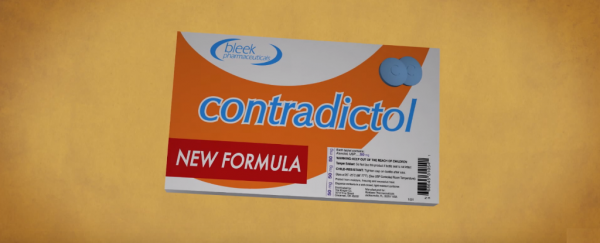The placebo effect might be in full force right now, but it isn't a new phenomenon. In fact, its origins can be traced back to World War II, when wounded soldiers were more plentiful than available doses of morphene on the north African battlefields. The surgeon had to operate, but there was nothing to give a soldier for his pain, so the nurse filled a syringe with salt water, and upon being injected with what he thought was a powerful pain killer, the soldier's pain went away. How is this even possible? The latest episode of It's Okay To Be Smart is here to wade through the strange science of the placebo effect.
When the surgeon returned to Harvard University at the end of the war, he investigated what went on in the soldier's mind. He found that a range of ailments, from gunshot wounds to the common cold, had been treated with fake medicine. Teams of scientists and medical doctors from around the world went on to study this phenomenon in the following decades, and even today, we're still not really sure how the placebo effect works. And it certainly doesn't help that no one's really sure what goes into a placebo.
When used in medical studies, a placebo is a pill that looks and tastes like the actual drug, and contains all the same inactive ingredients - such as sugar, yeast, and plant cellulose - just not the active ones. While that sounds straightforward enough, as the video above explains, researchers can be oddly cagey about what exactly they put in their placebos.
A recent review of over 150 trials from four medical journals found that only 8 percent of them disclosed their placebo ingredients. This means that no two placebos are the same, which explains why some placebos perform better than others in trials. And it's not just what goes into the pill.
According to Joe Hanson from It's Okay To Be Smart, a placebo capsule works better than a placebo pill, a placebo injection works better than a placebo capsule, and a placebo machine works better than a placebo injection. Higher dosages of placebos works better, certain colours works better for certain ailments, and a nice (fake) consultation from the doctor beforehand tends to up the performance. Fancy (fake) packaging, names, and branding? Yep - patients love them.
"Clearly the effectiveness of a placebo is tied to our perception of how sophisticated the treatment is," says Joe. "It's pretty wild - one thing with no therapeutic value can work better than another thing with no therapeutic value."
It's easy just to write off placebos as having a psychological effect on a patient - they convince themselves that the medicine is working and that makes them feel better. But placebos have been shown to cause very real chemical changes in our bodies, and even though they're in no way designed to, they can cause the brain to release its own pain-killing chemicals like dopamine and opioids. Watch It's Okay To Be Smart above to find out how.
